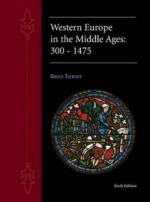|
This section contains 2,285 words (approx. 8 pages at 300 words per page) |

|
What is Heresy? Heresy is a series of religious beliefs and practices that the established (orthodox) Church deems false, and heretics are the people who support these unorthodox beliefs and practices. Heresy is therefore a firm commitment of the will and not just belief. As these definitions suggest, defining heresy is always subjective. What is heresy to one group of believers may be orthodoxy to another, and people who are labeled heretics can establish orthodoxies of their own and call others heretics. In medieval Christendom defining a heretic was ostensibly simple because everyone—except small enclaves of Jews or Muslims—was Christian as defined by the one Christian Church. Even within Christianity, however, there were differences between Eastern and Western Christianity and the definition of orthodox Christianity and its appropriate practices was still evolving during the Middle Ages. For this reason, what...
|
This section contains 2,285 words (approx. 8 pages at 300 words per page) |

|




